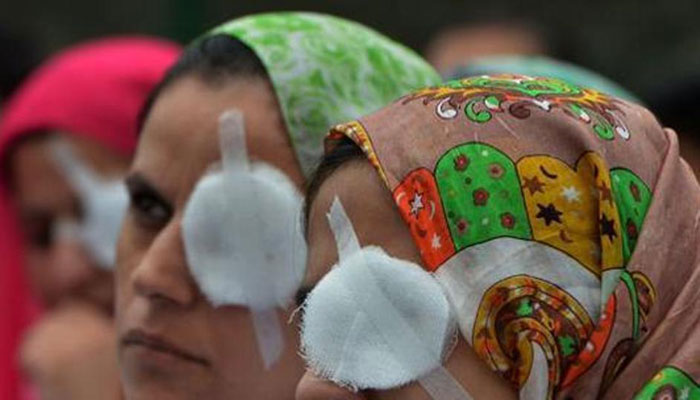'Kashmir’s pellet woes are real, despite criticism on picture'

Despite criticism on the picture used by Pakistani diplomat Maleeha Lodhi for highlighting the plight of Kashmiri pellet victims at the United Nations General Assembly, the issue of pellet gun usage in Kashmir is a grave humanitarian one for which a suitable answer is needed, Indian journalist Abhishek Saha writes forHindustan Times.
In his column, Saha points out that the use of the controversial weapon during 2016’s unrest “blinded and maimed thousands. Over a dozen persons were also killed. And the wounds caused by pellets are not only physical, they leave deep psychological scars and patients often slip into depression.”
“Data from Kashmir’s hospitals show over 6,000 people – including children as young as four and teenaged girls – had suffered pellet injuries, with over 1,100 hit in the eyes. Amnesty International says at least 14 people were killed due to it in during the unrest,” he writes.
“When a shotgun is being used on a crowd, it does not surprise us that it causes injuries such as we have seen. It is not meant for crowd control. It’s not used anywhere in the world. It’s not used anywhere in India either,” the head of Amnesty International in India, Aakar Patel, told Hindustan Times earlier this month. The human rights organisation has launched a campaign to seek an immediate ban on the weapon.
Saha notes that home minister Rajnath Singh has previously asked security forces to refrain from using pellet guns against protesters, while chief minister Mehbooba Mufti has also, on several occasions, called for restraint on the usage of the weapon.
The use of what is seen largely as an indiscriminate and disproportionate weapon need not be the answer in the face of violent stone-pelting protests, the journalist argues.
In her address at UNGA, Maleeha Lodhi had called for an inquiry into the war crimes perpetrated by India in Occupied Kashmir (IoK), noting that forceful occupation of the troubled, conflict-ridden region is illegal.
"Kashmir is not part of India," Lodhi had stressed, adding that the global community needs to collectively make India stop violating the ceasefire arrangement between the two countries.
Comments
Post a Comment